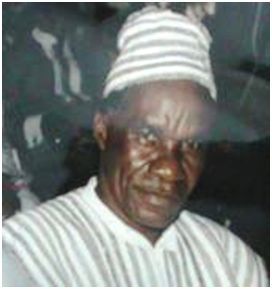Exploring Safe and Dignified Burial Public Response
The new World Health Organization (WHO) Protocol for Safe and Dignified burial of people who die from Ebola virus disease emphasizes inclusion of family members and encouraging religious rites as an essential part of safe burials. The protocol encourages inclusion of family and local clergy in the planning and preparation of the burial with specific instructions for Muslim and Christian burials.
President Koroma in his strides to contain the outbreak noted from reports received from health professionals that over 20 percent of Ebola infections occur during burials of Ebola deceased patients. He recently interacted with Ward Councilors, Tribal heads and Religious Leaders at the Miatta Conference Center throwing the challenge for the control, reduction and containment of the disease with their active participation in their various communities. The challenge is now in the hands of these people including Paramount chiefs, Parliamentarians and other stake holders across the country.
The Ministry of Health and Sanitation Health Education Division with support from WHO has just concluded a community engagement advocacy stakeholders meeting with 69 Ward Councilors and Stakeholders in the Urban/Rural Western Area on Safe and Dignified burial, and Neighborhood Watch, which ended at the Leicester community. Many issues of concern by communities in hot spot areas by bereaved families and relatives were raised against Burial and Swab Teams, Contact tracers and Surveillance officers. Some of the concerns expressed include delays in collecting corpses, producing timely results and handling of their deceased loved ones among other issues.
BUILDING TRUST AND RESPECT
The Ministry of Health and Sanitation and WHO by building trust and respect between burial teams, bereaved families and religious leaders are now building trust and safety in the response. Brining families and the local clergy in the community to pay last respect to the dead before lifting the corpse for burial, and at the grave yard side, though five (5) meters away from the grave makes significant difference in averting Ebola transmission
It is noted that Ebola infection occur during burials when family and community members perform religious rites that require direly touching or washing the body, which still contains high levels of Ebola virus. According to Ebola Specialists, where family members share personal property of their loved ones which may be infected with the virus poses a big threat. This is a common cultural practice especially in rural Sierra Leone. A recent Independent Observer local tabloid quote the IFRC Secretary General Ethadi As Sy thus: “we are becoming known for dead body management, but we do not manage dead bodies. we safely, and respectfully in a dignified manner accompany our deceased fellow human beings and help to prepare them in accordance with their cultures, for their last resting places”.
GROWING CONCERNS
Making their contributions in their various wards during Advocacy Meetings organized in western urban/rural area, community members expressed their growing concern on movement of people in Quarantine homes, from one place to another, harboring the sick, and the denial by some members in affected communities.
In building trust, respect and confidence in the health systems approach to end the Ebola war, the country has seen progress in the area of burial, case management and logistics, and also in the Presidential social mobilization campaigns across the length and breadth of the country, but the defile continues to pose a challenge to make the expected impact.
The question is, when shall we as a nation, patriotically join President Koroma, the government and partners to beat Ebola?
Together we can do it.
By Jonathan Abass Kamara
Stay with Sierra Express Media, for your trusted place in news!
© 2014, https:. All rights reserved.






